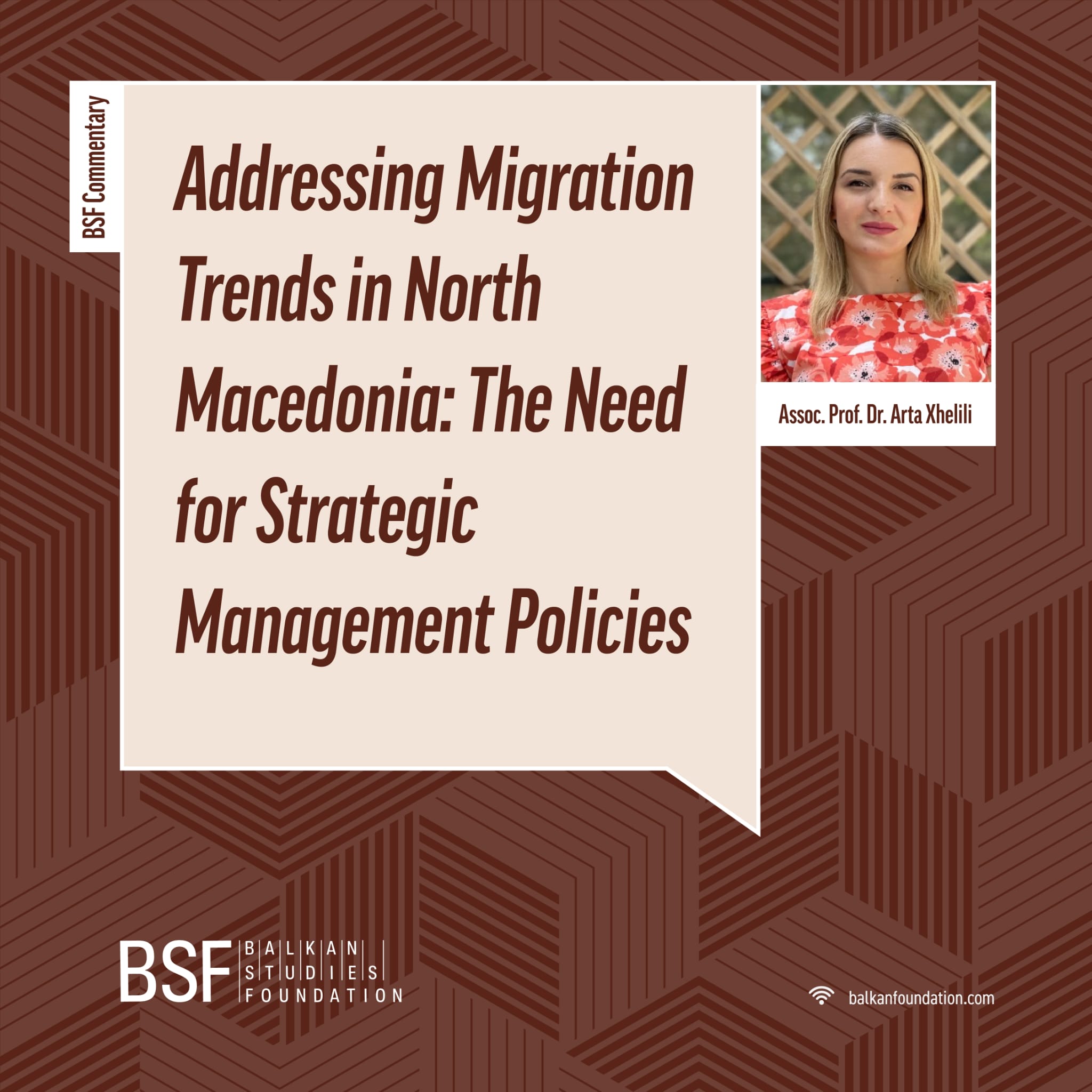
Arta Xhelili
/
Migration began with human history. Demands, needs, conditions and circumstances that have accompanied the individual and the society for centuries, have made migration as essential and inevitable. The process of globalization, the scientific and technological progress, as well as the constant demand for a better and safer life, are the main drivers of migration for individuals from underdeveloped to developed countries. Traditionally, migration has been seen as a negative phenomenon that causes a lack of human resources in countries of origin and as a threat to security and labor force in countries of destination. This perspective has changed in recent years, where migration has begun to be seen as a phenomenon that, aided by appropriate policies, can promote development.
Migration as a multifaceted and ubiquitous phenomenon in all countries of the world has intensified in recent years in the Republic of North Macedonia, having a demographic, political, economic, social and psychological impact. North Macedonia has encountered all forms of migration: external and internal, forced and voluntary, regular and irregular, migration of highly qualified and unqualified workers. At the same time, North Macedonia is facing negative growth, emigration and great potential for further emigration, so it would be important for it to consider strategic considerations that would stop these negative trends.
Among the most common topics in the field of migration research are the questions “why people leave”, why migration occurs and how it changes over time. Based on the review of the literature on the reasons, causes and factors that stimulate migration, and the studies that I have conducted over the years, the reasons for migration in North Macedonia can be divided into traditional and contemporary. Traditional driving factors are unemployment, nepotism and corruption, lack of meritocracy, political and economic instability, and poor health services. Globalization trends have imposed a new type of migration, which differs from other forms, although more limited in number is more widespread in scope. New factors of migration are: the ideal image of the West; the crowd factor: “Everyone is leaving, what are we waiting for”; and modernization: the family is shrinking, needs and passions are growing, and the society is transformed to a consumer society that cannot be satisfied.
North Macedonia, as well as other Balkan countries, lacks proper migration policies. So far, several governmental bodies (Ministry of Foreign Affairs, Internal Affairs, Labour, etc.) have mainly influenced the issue of migration indirectly, but the creation and implementation of research-based policies has not been practiced. In order that the Republic of North Macedonia to successfully respond to the global challenges of migration and to be able to build strategies, it is necessary to initially raise the level of knowledge by advancing migration studies and raise awareness on migration issues, as well as the awareness of political decision-makers about the causes, consequences and future trends in population movements. Migration related research would generate and disseminate a wider range of knowledge that will assist more balanced, comprehensive, sustainable strategies in terms of the country’s treatment of migration challenges. Migration studies would provide policy impact research that will assist the state and policy makers to consider appropriate actions regarding migration policy. In accordance with the needs of North Macedonia the development of two types of policies is considered imperative: (1) policies that would help countries to manage migration, and (2) policies that would manage diaspora investments, respectively social and economic policies.
In sum, migration is a process that cannot be stopped and we should not try to stop it. Rather, we should focus on understanding it and developing comprehensive policies and appropriate migration management measures that both migrants and communities would benefit.